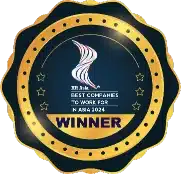Efficiency is the buzzword of the 21st century. On paper, efficiency means maximising your outputs while minimising your inputs – basically, more bang for your buck. But not every efficiency metric is easily measurable.
It’s easier to understand how you can make your business more efficient by understanding how a business is inefficient. Let’s say your accounting department absorbs 10% of your operating costs. Does that percentage sit comfortably with you? Accounting is undoubtedly one of the most important parts of your business, but it doesn’t produce anything and it doesn’t directly generate any income. So why does it cost so much to run?
There are many parts of every business that use too many resources – whether that’s labour, revenue or time. As already mentioned, efficiency isn’t about cutting back – it’s about redirecting those resources so that they are being used in a more productive way.
Business inefficiency usually happens when staff or processes fall into bad habits, or when managers fail to embrace new technology and resources. A lot of business inefficiency is about process rather than people.
When going for the low-hanging fruit, it is common to improve business efficiency in back office operations such as accounting, finance, sales processing and invoicing. Other areas where you can look to improve business efficiency include project and task management, business workflows, logistics and team management, as well as customer support and marketing.
A common business efficiency tactic is to outsource some of these roles to the Philippines. The reason why this works is because, as mentioned, inefficiency is about process rather than people. If you can streamline your processes, then it’s easier for your staff to become more efficient, no matter where they are located.
The Philippines is a well-known outsourcing destination because it has a well-educated English speaking population that has been offering back office operations to huge multinational companies for decades. More recently, smaller companies have taken advantage of the time and resource efficiencies they can gain by working with Philippine outsourcing providers.
Many companies now outsource accounting roles such as invoice processing, bookkeeping, accounts payable and receivable, and even financial reporting. These are highly process-oriented roles that, with the right team, are easy to train. Moving the day-to-day financial tasks offshore means that your finance manager can concentrate on other areas of the business that actually contribute to growth. It’s a win-win all around.
Another common area to gain business efficiency is in labour productivity. This includes roles such as project management, scheduling, virtual assistants and training.
A lot of project management involves lining up schedules and resources. Most of it is done by email and collaboration tools, with the occasional phone call. There’s no reason this can’t be done by an offshore team member. The same is true for administrative and secretarial tasks. Imagine giving your sales and product teams the freedom to get on with their jobs, while virtual assistants take care of things like scheduling, expenses, making bookings and resource management!
Again, efficiency is not necessarily about making cuts. It’s about directing resources to the right areas. Your sales team should be focused on making sales, not on filling out paperwork. Leave that to the virtual assistants.
Most people understand the value of having an offshore back office to improve business efficiency. Virtual assistants and offshore accounting are fairly commonplace. But you can also gain operational efficiency by using offshore team leaders, workforce managers and customer support.
A global workforce means you can offer customer support 24/7, not just during your local office hours. Your customers are looking for solutions throughout the day and you need to offer them support when they need it, not only when it’s convenient for you. Offshore customer support is an area where the Philippines particularly excels and with VOiP technology, you can offer telephone as well as email and chat support nonstop.
Once you’ve tapped into the potential of offshoring to improve your business efficiency, you’ll realise you can utilise it everywhere, even in more senior or specialised roles. For example, in HR and marketing.
There are few things as costly as making a bad hiring decision. An offshore HR assistant or manager can help avoid those pitfalls by thoroughly researching candidates, screening and testing them, and drawing up shortlists.




